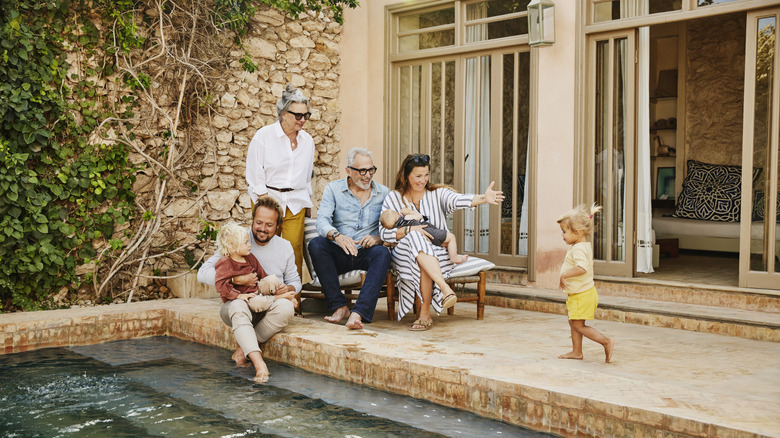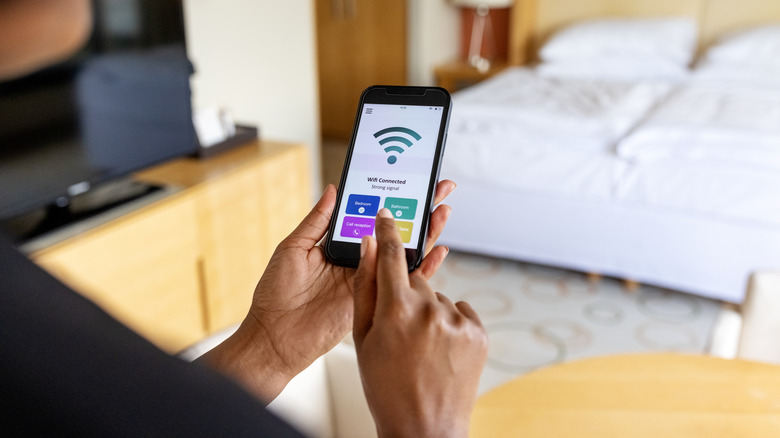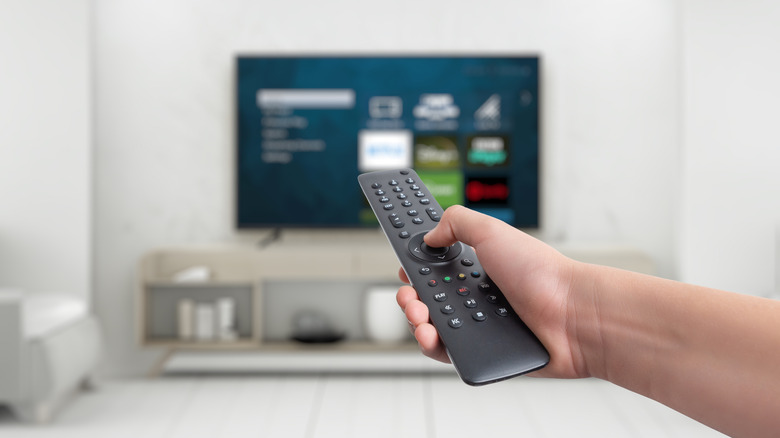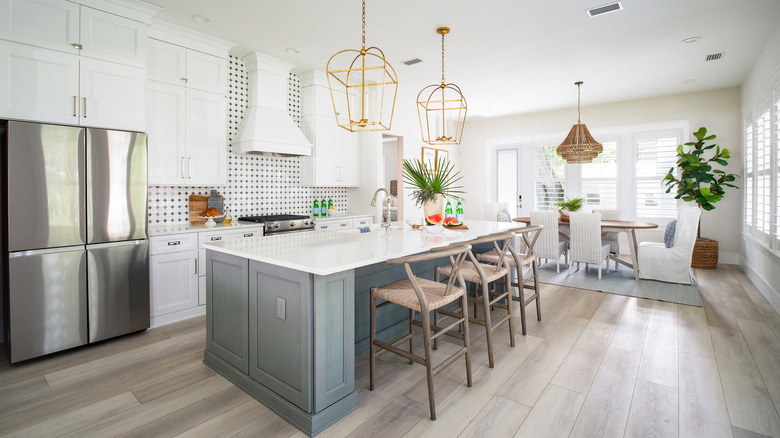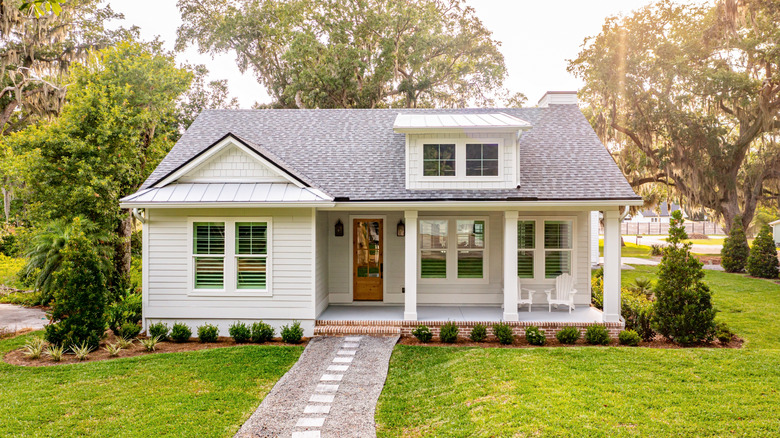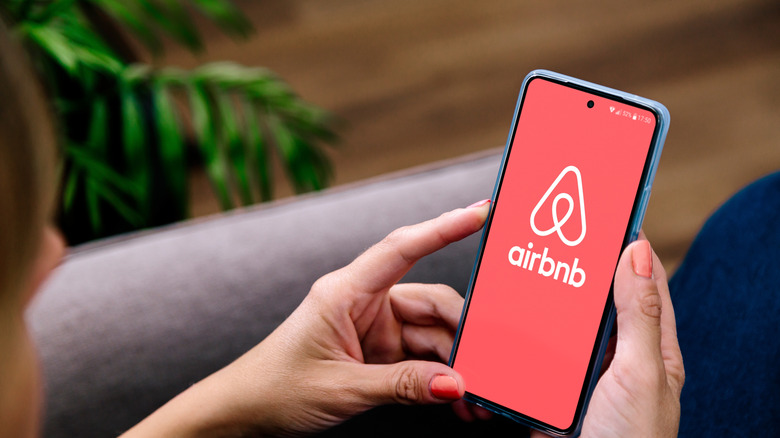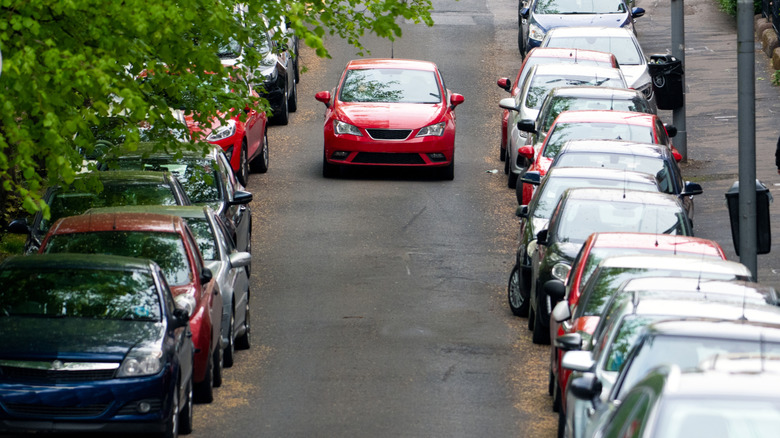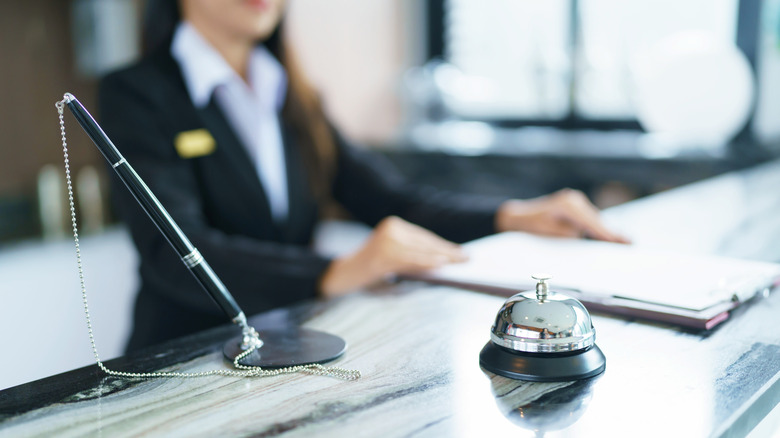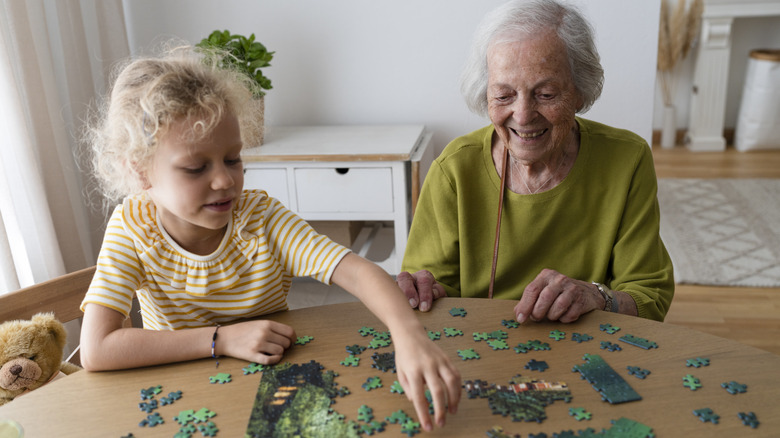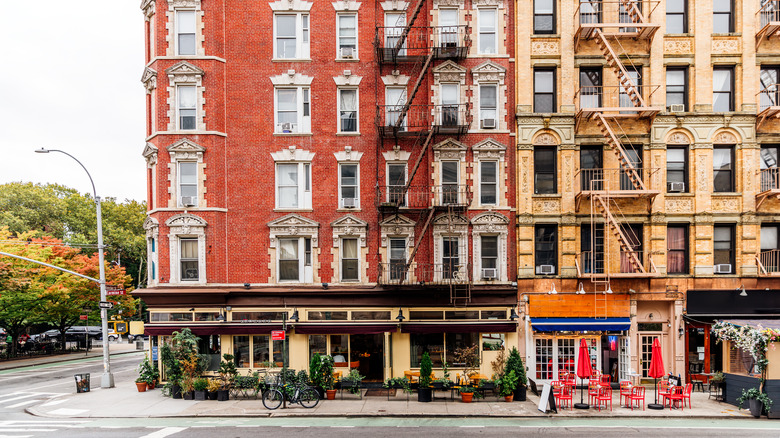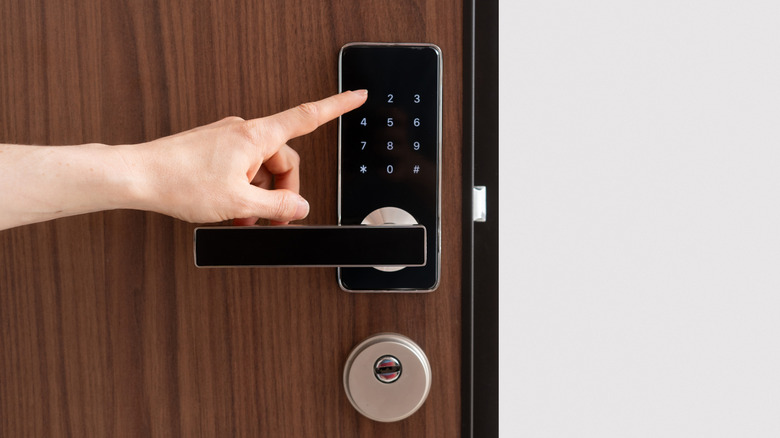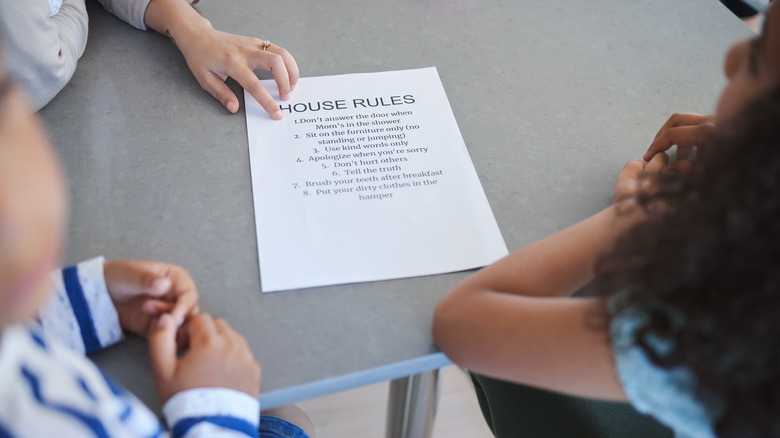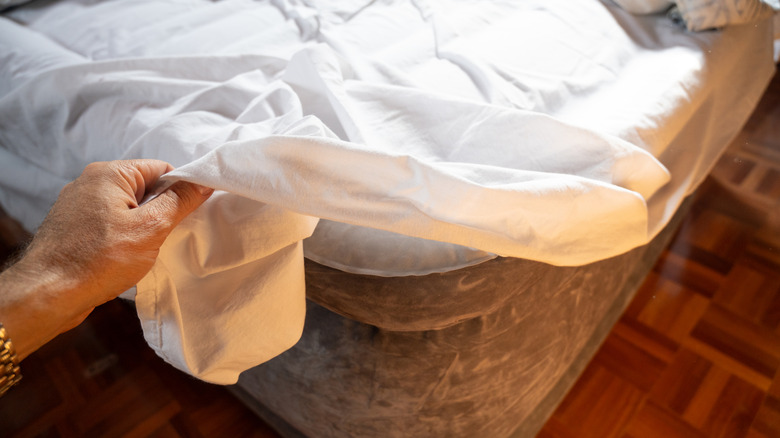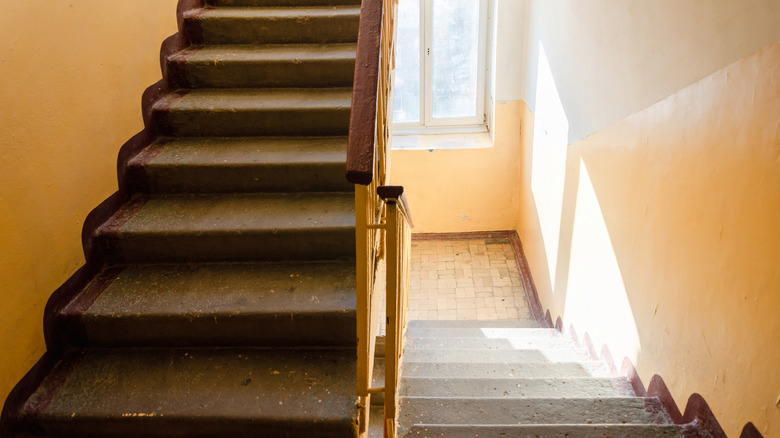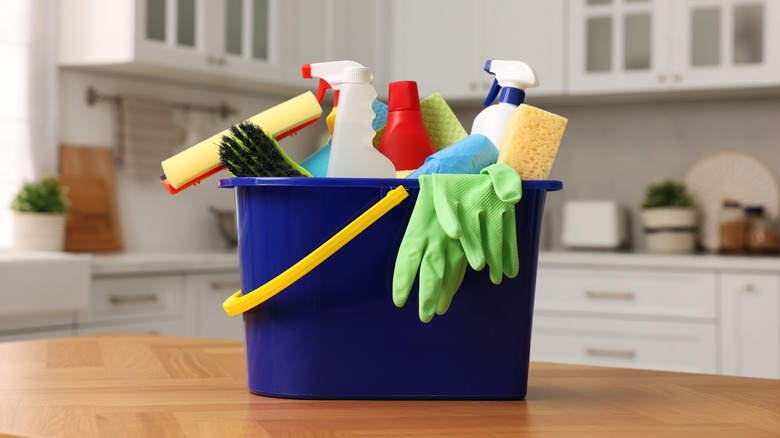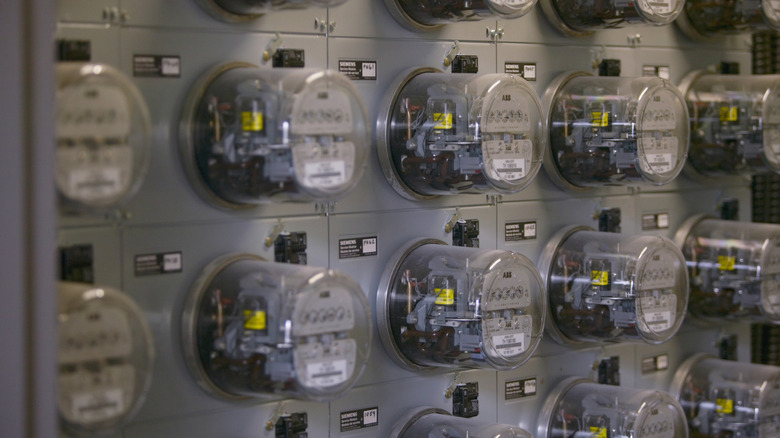The Most Crucial Questions You Need To Ask Your Airbnb Host Before Booking
It is strange to think that only as recently as 2006, Airbnb didn't exist. It wasn't until the following year that a home in San Francisco hosted three guests, and from those humble beginnings, the company grew into a global juggernaut. Today, it is the biggest name in a whole industry packed with different avenues for vacation rentals. The medium has listings for more than 5 million hosts, with properties in more than 200 countries and regions worldwide.
Typically, Airbnb guests won't find a front desk for checking in or answering questions, a concierge to organize excursions, or a restaurant to get their daily meals. Airbnb listings also don't generally have their own dedicated website but appear in a specific format that adheres to the Airbnb template. Further, they lack a phone number or email address for the owner or manager of the unit. So, while an Airbnb listing might have plenty of information about the rental — whether a city apartment, a rural house, or a giant villa by a beach — there might be certain facts that are missing.
This is where asking the right questions can add some clarity. We discussed this with expert Andrea Clarkson, a consultant and creator of Mamma Mode, a blog for Airbnb hosts. She shared her wisdom with us on what travelers should be aware of before booking, noting that "understanding the specifics can greatly enhance a guest's experience."
How strong is the Wi-Fi?
Can anyone remember life before Wi-Fi? Believe it or not, we haven't always been so connected. Unfortunately, many of us still need to check in on work when on vacation, and having a strong Wi-Fi signal is crucial. Listings will typically show whether a unit has Wi-Fi under the "What this place offers" section, but that doesn't indicate the potency of the network and signal. That specific nugget of information is crucial."Guests might ask about the Wi-Fi strength if they need to work," notes Andrea Clarkson.
We stayed in a remote Airbnb in the Scottish Highlands, and the information on the unit's listing showed that the house had Wi-Fi. However, the signal was only strong enough to allow simple messaging, and that was when standing right by the router. Luckily, we had that information before arriving and were prepared for such a scenario (if we really needed Wi-Fi, we could have set up a portable hotspot or, you know, not gone on vacation in the Scottish Highlands). Had we not been aware of the situation, the creaking realization that we would be in a data black hole might have been a sharp shock.
Does the Airbnb have a smart TV?
Same as checking the strength of Wi-Fi, travelers should inquire whether the rental has a smart TV. After all, we have all gotten used to watching streaming services at home, and catching up on shows on vacation is a great way to unwind or spend time with traveling companions. Not having a smart TV can be a real downer, especially if you are stuck indoors because the weather is terrible or you have a little time to kill before your dinner reservation or flight. Airbnb listings only allow hosts to show whether they have a television or not, but not the kind of TV provided.
Check with the host whether there is a smart TV waiting in the rental property. Some properties have a smart TV in every room (which is great for people who like to watch different shows but is not very conducive to vacation bonding), while others might just have one in the main living room. If the place does have a smart TV, it is usually an indication that the unit also has good, dependable Wi-Fi.
What is in the kitchen?
The list of things stocked in an Airbnb's kitchen can be wide-ranging, covering everything from a microwave to a kettle and beyond. All of these are useful things to know in advance, but there are other items that a traveler might want or expect in the kitchen that a listing is unlikely to highlight. This is especially important for guests who like to cook when they are on vacation.
Are things like salt, pepper, olive oil, and sugar waiting in the cupboards? Does the kitchen have chopping boards, a full set of knives, saucepans suitable for frying an egg, or pans for boiling pasta? For a unit that can hold 10 people, for instance, is there enough crockery and cutlery so that everyone can eat at the same time? This might seem like a moronic question, but it's not — we've stayed at a unit capable of handling six guests but that only had two forks. Whatever is important to you, be sure to ask about it because some of these will not be listed on Airbnb.
Do you have extra photos of the property?
Have you ever noticed that some Airbnb listings have tons of photos of the property, showing every precise detail and all the rooms from various angles? Then there are listings that offer only generic shots of the surrounding area and attractions, with a paltry few of the property itself. Finally, there are rentals with hardly any photos at all. In the last two cases, you should contact the host to request additional photos, especially if important parts of the unit are missing from the slides — things like bedrooms, bathrooms, and the kitchen. "A listing might warrant a second look if the photos are sparse or seem overly edited," says Andrea Clarkson.
The bottom line is that if a property seems great but some of the things you need to see before making a decision aren't shown on its Airbnb page, ask for more shots from the owner. If the host really wants to rent out the unit to you, they will make an effort to provide you with the necessary pictures. If you find them to be evasive or they just refer you back to the listing page, it might be a sign that this isn't the unit for you.
Why aren't there any current reviews?
One rule of thumb that many Airbnb users swear by is to only book listings with reviews from the previous 12 months. If reviews are missing, then you are rolling the dice. You might win big time, or you might go bust. "A lack of recent or substantive reviews, or reviews that hint at issues like cleanliness or noise, should also prompt guests to ask more questions," writes Andrea Clarkson. Like many websites that allow ratings and reviews, Airbnb places a lot of weight on those ratings. Along with a regular pattern of reservations and low cancellation rates, hosts that score consistently high in the Airbnb rating system (it goes up to 5) qualify to be Superhosts.
This category of host gets special treatment from the platform, with a notation on their listing attesting to the status and the chance to have their listing appear in a more favorable search position. "Consistency in positive guest reviews, particularly those highlighting the host's responsiveness and attentiveness, is also a good sign of a reliable host," continues Clarkson. If you come across a listing that seems ideal and has good reviews but notice that the most recent one is from five years ago, something might be awry. Ask the owner to address why there aren't any newer reviews. And if there are no reviews at all, the unit might be a risky choice.
Is there free parking available?
Many guests will drive to their Airbnb, be it with their own car or a rental. Having a private vehicle is a convenient way to explore a destination, and whatever kind of Airbnb you rent (from an apartment within downtown Chicago's iconic skyline to a multi-story home in the Smokies), the freedom of a vehicle can help you cover more ground quickly. You could be staying in an Airbnb property on a bucket list road trip or a breathtaking drive in a national park.
However, the benefit of having a car can quickly be punctured if you don't have a place for free parking near the rental property. Travelers should "clarify parking options if they're driving," notes Andrea Clarkson. That way, you might find out that your only option for parking nearby is in a private garage for $40 per day, in which case you might want to make other arrangements for your stay.
Is early check-in or late check-out allowed?
In a perfect world, travelers could check in and out of a room, apartment, or house at any time that suits their schedule. This could coincide with flight arrivals or departures or the best time to avoid traffic on your way to and from a destination. Unfortunately, accommodation doesn't work this way, especially when it comes to Airbnb, as your most convenient departure timings might derail the check-in process for the next guest.
The good news is that there can be some wiggle room, and a host might let you check in to their rental a little early or leave a little late. And the only way you will know if that's allowed is by asking. "It's wise to inquire about the flexibility of check-in and check-out times to accommodate travel schedules," declares Andrea Clarkson. For instance, check-out might be at 11 a.m., but your flight doesn't leave until 6 p.m. Instead of leaving right at 11 a.m. and waiting at the airport for six hours, maybe your host will meet you halfway and let you check out of the property at 2 p.m.?
Ask for details on specialized accessories or interests
Many travelers will only have minimal requirements from their Airbnb. They simply want space, comfortable beds, clean bathrooms, and somewhere to rest their day head after a long day of sightseeing. Other guests will need more. For example, if you are traveling with children, you might want things in the unit to keep them entertained, like board games and puzzles. If there is a toddler in your party, a pack-and-play might make the entire vacation run that little bit more smoothly.
The need for extras also extends to outdoor adventures. If you are renting a unit in a place with excellent snorkeling (like any of these stunning snorkeling destinations in the U.S.), it might be nice to go to a rental that has masks and fins stocked. If you are booking a winter excursion in the mountains, how great would it be if the host provided snow shoes? If there is something specific to the destination or your travel style that might make your trip even better, contact the host to see if it will be available.
What is in the neighborhood?
When searching for a rental on Airbnb, users usually plug in a location, dates, and the number of guests. The location can be as precise as you like — Sunset Boulevard in Los Angeles, for instance — or expansive and vague (just searching for Los Angeles). The listings in that location populate a map of the specified area, but what they don't show is the exact site or address of the unit. This you only get once you book the rental. So, while you can guess roughly where a property is, there is still an element of speculation.
It's worth finding out if there are supermarkets, restaurants, or places of interest within walking distance of the property. If you plan to cook while on vacation, having easy access to a grocery store is critical. And if you are a zombie in the mornings with no bandwidth to even pick up a knife or whisk, you might need somewhere close by to get breakfast first thing.
Is the property accessed with a keypad or physical keys?
Guests usually self-check-in at an Airbnb, and this can be done via a variety of methods. If the unit has physical keys, they might be waiting in a lockbox or left in a secret place that the host will inform the guest about. The main entry door might also have an electronic keypad, an option that is becoming increasingly popular. Sometimes, the host might be present to hand over the keys or provide instructions for access. It helps to know which method you will be expected to use ahead of time so you won't be confronted by any surprises.
If the property is accessed using a physical key, does the host supply more than one set? For an electronic keypad on the door, when is the code supplied to the guest? We once stayed at an Airbnb unit where we were given the wrong code for the electronic keypad and had to wait outside for an hour before it was rectified. Understandably, we have been somewhat wary of them ever since. Before you arrive, be sure to clarify exactly how you will access the property.
Clarify any questions on the house rules
"Asking about any house rules or restrictions can prevent any surprises," explains Andrea Clarkson. Is the no-pet policy strictly enforced, and is loud noise prohibited after a certain time? If smoking isn't allowed in the rental, is it allowed outside? There may be restrictions on wearing shoes in the rental, taking photos in the unit, storing luggage after check-out, or adjusting the thermostat beyond a certain level. It never hurts to know the rules before you arrive.
"Additionally, if a host's responses are vague or delayed, it could indicate potential communication issues during the stay. A good host will offer clear and detailed information in their listing and respond promptly to inquiries," continues Clarkson. Being clear on the house rules isn't the only thing travelers should seek clarity on beforehand. "Reviewing the cancellation policy is essential for understanding how flexible your booking is, which is especially useful in today's travel climate."
Are there any special requirements upon check-out?
Incorrect door codes notwithstanding, checking into an Airbnb is usually a straightforward process. You get the keys or the code and stroll into the unit. Surprisingly, checking out is not as linear, and hosts often outline a number of provisions that guests need to follow. Some might seem perfectly logical, but not all tread the path of common sense. A host might want the customers to strip the sheets of all the beds or take out the trash. This might seem counterintuitive to a guest already paying a cleaning fee, but a host can set the rules as they wish.
It's up to you to decide whether those guidelines are acceptable, and you should do that before committing your money and booking. Furthermore, transmit all correspondence using the website or app. "Always ensure that all communications and transactions occur through the Airbnb platform to take advantage of its built-in protections," advises Andrea Clarkson. Whatever you decide, be sure to do a walkthrough and take pictures, which is the one thing you should always do before checking out.
Do you need to climb stairs to get to the unit?
For travelers with mobility issues, the location of an Airbnb can be a real dealbreaker. If you have to climb stairs when doing so is extremely difficult, or even impossible, then a poorly-located rental property can ruin a vacation. Unfortunately, this sort of information is usually not included in a listing. You don't want to have to rely on reviews to find out about flights of stairs.
Photos and the description of a rental unit might showcase the amazing elevated views, the sense of openness and floods of natural light, and the cool breezes the setting affords. But it likely won't say a lick about how you get up to the apartment or house in the first place. Isn't this something that you'd like to know before you arrive with heavy bags in hand? Only the host can supply that information, so ask away.
What basics are provided?
When you check into a hotel room, you don't generally have to worry whether there will be soap, towels, and toilet paper in the bathroom. Those things are always there; if not, you just need to run down to the desk to get some sent up. And you don't fret over the lack of cleaning supplies, knowing that you aren't the one who will be cleaning up after yourself. At an Airbnb, these normal items become variables. Generally, things like soap and shampoo are supplied, but that's not a certainty 100% of the time.
You might want to know if the unit has basics in the kitchen, such as cleaning supplies, a dustpan and brush, a vacuum cleaner, and extra trash bags. If you are going to cook a lot, you will want to clean up after your meals. This means sweeping the floor, doing the dishes, and wiping down the table and cooking surfaces, as you would at home. If the materials to do these things are missing, how will you do them? An Airbnb is effectively your temporary home, so you should feel responsible for keeping it tidy.
What extra charges might be incurred?
If you end up staying in an Airbnb for an extended period of time, rather than feel like a temporary home, it might soon seem like your actual home. In such long-stay scenarios, guests might get charged for things that short-term guests might get folded into the daily rate. This includes utilities like electricity and heating or one or two cleaning sessions throughout the duration of your stay.
Again, this might not be implicitly stated in a listing for a particular property, but it can still be levied. Even if you aren't planning to stay more than a few days at a rental, always check with the host whether there will be charges added that aren't detailed on the listing page. If there are, ask them for an estimate of how much that charge would be for your proposed length of visit. Armed with that knowledge, you can decide if that Airbnb is the one for you.
